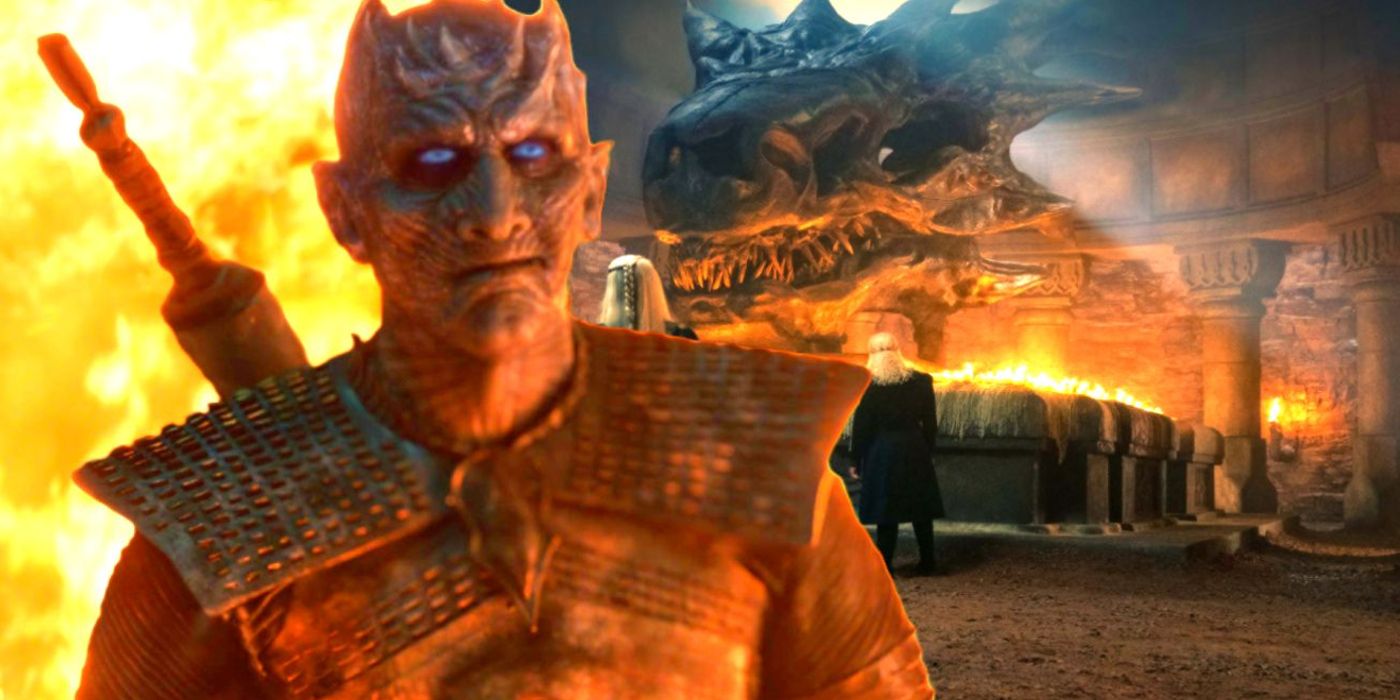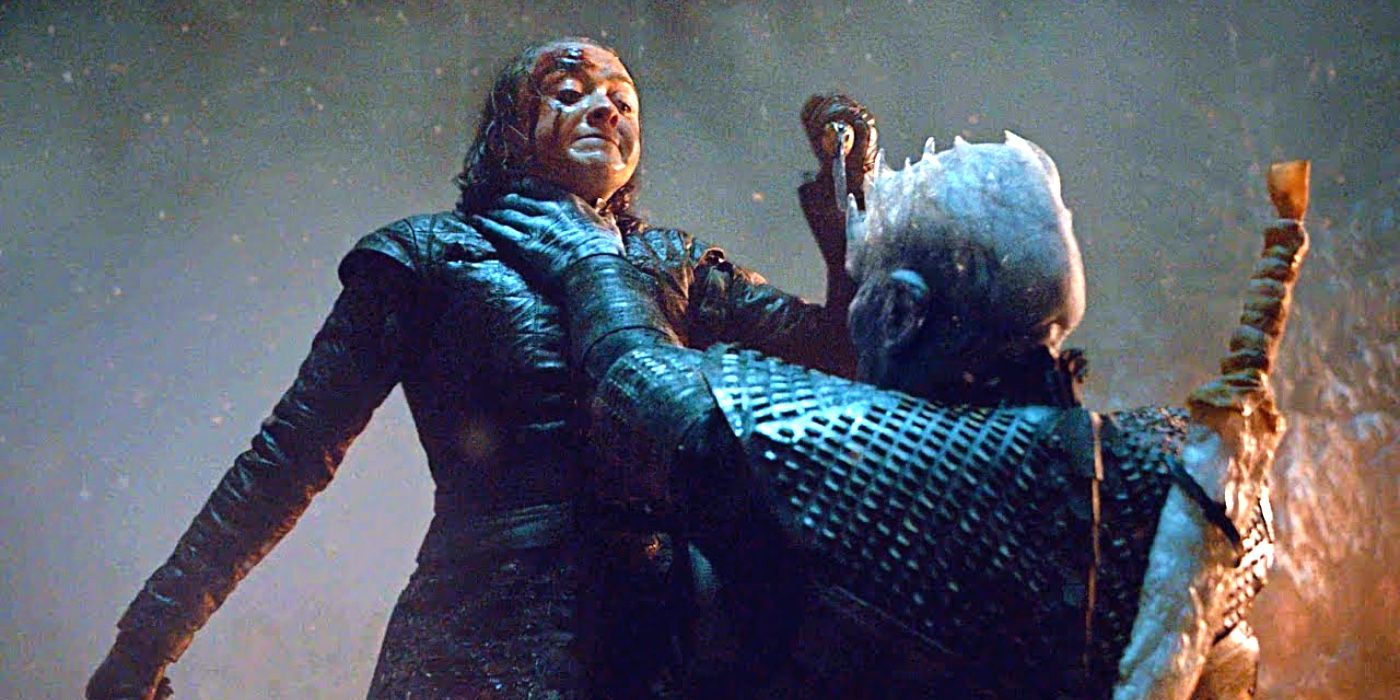Warning: Contains SPOILERS for House of the Dragon season 1, episode 1.The reveal of Aegon the Conqueror's dream in House of the Dragon unfortunately serves to make Game of Thrones season 8's ending and Night King choices even worse. The White Walkers were established as the overarching threat right from the very opening scene in Game of Thrones' first episode, albeit one that would spend much of the show looming in the background rather than being actively involved. But as Game of Thrones' ending approached, so too did the Night King and his army, only for them to surprisingly be dispatched at the halfway point of season 8.
House of the Dragon unexpectedly goes back to the White Walkers, in a fashion. Barring any really major shocks, the Night King will not be appearing in the prequel, but his coming is forewarned at the end of the episode. This sees King Viserys Targaryen (Paddy Considine) tell his daughter and new heir, Rhaenyra (Milly Alcock) about Aegon the Conqueror's dream of a coming winter and darkness that threatened, meaning the Night King, White Walkers, and wights.
Aside from Aegon's dream being a Game of Thrones retcon, and a twist that so far hasn't made it into George R.R. Martin's books yet either, it also reframes the show's ending and the climactic battle between the living and the dead. The White Walkers' ending already seemed rush, as did much of Game of Thrones season 8. But with the knowledge that the Targaryens had conquered Westeros because of them, effectively making this an event centuries in the making, then it becomes an even bigger waste of potential: 300 years of foreshadowing and knowledge, and just three episodes to deal with the threat in the end.
House Of The Dragon Proves The White Walkers Needed More Time In Game Of Thrones
The way Game of Thrones ended the White Walkers' story, with Arya killing the Night King, wasn't necessarily the wrong choice (though there's a strong argument it should have been Jon Snow, and Aegon's dream makes that more convincing), but the way it happened was. As House of the Dragon makes clear, the White Walkers weren't just the main threat in Game of Thrones' story, but in Westeros' history. Previously that had only seemed to be true in the most long-ago of cases, with the tales that became legends of the Age of Heroes and the Long Night. House of the Dragon's reveal makes that far more tangible to (relatively) modern Westeros, and so makes it even more pertinent that the conflict between the living and the dead should have spanned more than just half of Game of Thrones season 8, and really only one episode that truly showcased it.
Game of Thrones sped towards its conclusion, but there could have been an entire 10-episode season in the story it told in just the first three installments of season 8. The Battle of Winterfell was the only real conflict in the war between the living and the dead, and the Long Night lasted just one night. House of the Dragon makes this even more of a generational story, passed down through the years to prepare for what's to come, and yet the Targaryens in Game of Thrones had no knowledge of Aegon's dream. It makes sense as a reveal in House of the Dragon season 1, episode 1's ending, fitting with the characters, House Targaryen history, and where Martin will likely take things, but it doesn't help Game of Thrones' ending.


